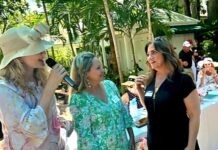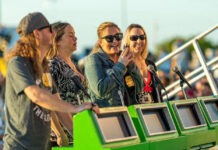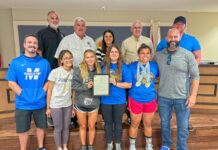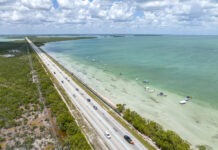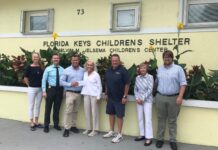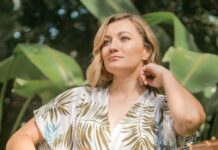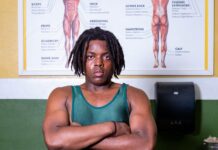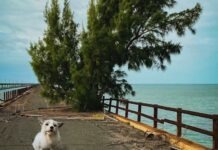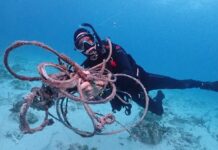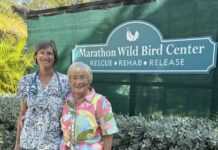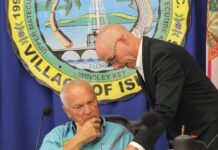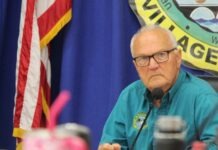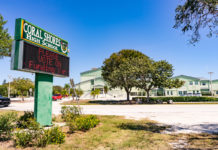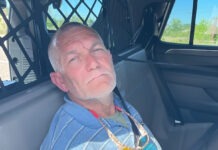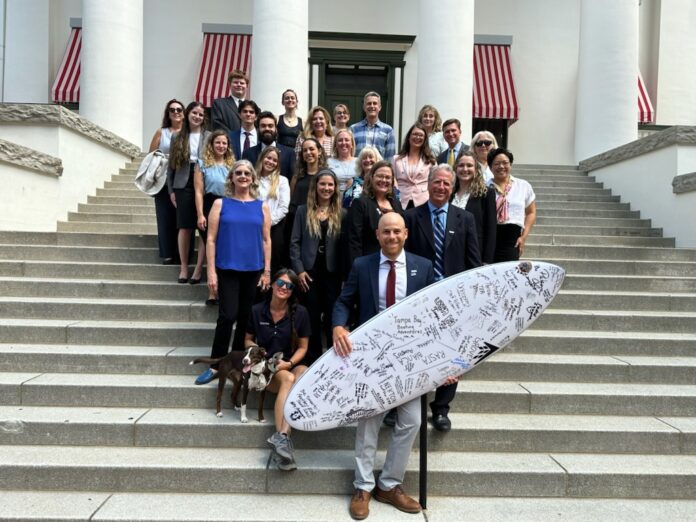
On April 4, I joined 30 Floridians from around the Sunshine State in Tallahassee for Florida Healthy Beaches Day. The majority of us were not trained or paid lobbyists, but rather concerned surfers, divers, boaters, educators and advocates. For most of us, being civically engaged was unfamiliar, but the experience ended up being worthwhile and rewarding.
According to Emma Haydocy – a Tavernier resident, avid angler and Surfrider’s Florida policy manager – lobbying is influencing or swaying another toward a desired action. It’s getting something you want by talking to decision makers. We practiced “direct lobbying,” in which we asked decision makers to vote in particular ways on specific pieces of legislation.
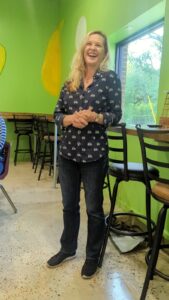
The action actually started the day before, when Surfrider Foundation hosted an Advocacy 101 training with its conservation partners, Oceana and Healthy Gulf. Haydocy explained how a bill becomes a law (cue Schoolhouse Rock), what to expect and why this process is important. She said, “My hope is that this process will be demystified and that you’ll feel more comfortable getting involved and staying engaged in the lawmaking process.”
Her tips were logistical, practical and educational. Standouts included:
- Don’t be late.
- Dress appropriately (suits or business casual) and wear comfortable shoes.
- Stories humanize issues and make them memorable – don’t be afraid to tell yours.
- It’s okay to say “I don’t know. Can I get back to you?”
- Make specific requests (e.g. please co-sponsor Bill A, please ask the Speaker of the House to support this issue, etc.).
- Don’t try to change everyone’s mind. If you start butting heads, pivot to common ground.
- If you can’t meet with legislators, meet with their staff. These people are the trusted resources of our decision makers, and we want to become their trusted advisers.
- Leave information packets behind with representatives with bill reference numbers, pertinent background information, desired outcomes (support/oppose/fund/etc.) and the contact information of everyone in your group.
- Send thank-you notes and follow up with any information you promised.
Keeping these tips in mind, we started lobbying. Christy Le Mahieu began with a story about a popular kayaking spot in Miami that’s been contaminated and unsafe for over three years. Le Mahieu tests water quality for Surfrider Miami, and the results show dangerously high bacteria levels. Wildlife in this area gets sick often, and people kayaking and stand-up paddleboarding often develop skin lesions. She closed out her story with a funding request for more robust water quality testing statewide.
Being a constituent from the Florida Keys, I discussed preemption issues. As Rep. Jim Mooney (R-120) explained to us during a morning plastics briefing, preemptions prevent local cities, counties and regions like Key West or Monroe County from making their own laws about certain topics. Locally in the Keys, bans on plastic bags, plastic straws, chemical sunscreen sales and cruise ship traffic/size have been preempted by the state. I stressed how locals know their homes best and how to protect them, urging representatives to support local entities’ rights to determine their own laws.
Finally, Anna Aigner, a native of Austria, shared how her lifelong dream was to live by a beach; now that she’s moved to Miami, she feels a deep responsibility to protect it. She recommended resiliency measures that combat climate change – including mangrove restoration, coral reef restoration and other nature-based solutions.
Collectively, we met with 22 offices of representatives and senators throughout the day, including the Keys’ Mooney and Sen. Ana Maria Rodriguez (R-40). The former advised us to focus on our most important issues to get more done; the latter committed to fighting balloon releases and asked about shoreline cleanups.
In all visits, we advocated for clean water and healthy beaches – and specifically for water testing, plastic pollution reduction and climate change/resilience funding and projects. We asked legislators to clarify their positions on key bills, and most obliged – allowing us to find new champions for our legislative priorities in the next session.
At the end of the day, Le Mahieu said, “My key takeaway from this is that they’re people and they listen. … I was always one of those people that thought, ‘Oh, my voice doesn’t matter. Nobody is gonna listen to me.’ That’s not true. They listen. They care. So get involved.”
As for me, I gained a deeper understanding of what it takes to effect change and a new appreciation for the political process. It’s a privilege to access our decision makers and to have opportunities like Healthy Beaches Day to bring our concerns to them. Not everyone has this right, so I encourage all of us who do to capitalize on it. Because, as Haydocy said, “If we don’t show up for our clean water and beaches, no one does.”


